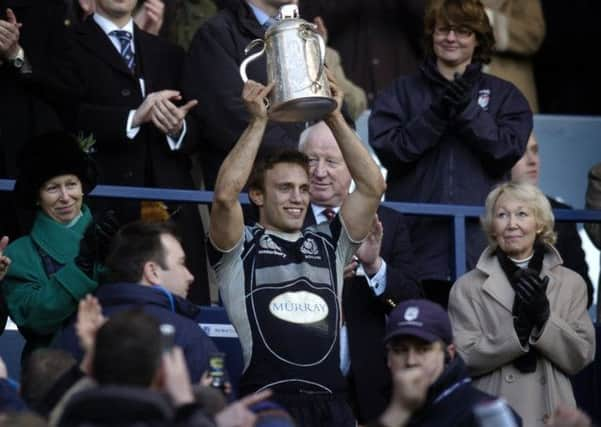Allan Massie: TMO should be scrapped


There were so many referrals in the Italy-Fiji match last month that the first half lasted 59 minutes. This is ridiculous.
The present regulations – or recommendations – allow the TMO to track back two phases before a try may have been scored. The logic is hard to grasp. If two, why not three, four, five and so on? Rugby is so complicated a game that you can nearly always find something that might have been whistled up. Moreover, if you were to take referrals to the TMO further, why not ask him to look at penalties awarded at the breakdown? Some of them are dubious; yet a penalty may decide the result of a match just as surely as a try may.
Advertisement
Hide AdAdvertisement
Hide AdI would scrap the TMO altogether – we do well enough without one in the amateur game. Mike, however, recommends that his role should be restricted to determining whether the ball was properly grounded and whether the player carrying the ball was in touch. As for any foul play at an earlier phase, that should be the responsibility of the citing commissioner.
It is not only the time taken by the TMO which means that matches now stretch out to almost two hours from kick-off to final whistle. Reset scrums, the lengthy confabulations of the forwards on the side throwing the ball into the line-out, the excessive time taken by goal-kickers, the treatment of minor injuries on the field, the frequent coming-and-going of replacements and water-carriers – all these things contribute.
This is boring for spectators, but it has another harmful consequence. It slows the game up, and this is to the advantage of the team which is less fit than their opponents. Instead of being run off their feet, so that gaps appear in their defence or they start falling off tackles, the frequent stoppages allow them to get their breath back. Moreover, as my colleague Iain Morrison wrote recently, this also means that players are valued more for strength than for the ability to keep running at speed. This too makes for a more boring game, with sequences of single-pass-and-head-down-into-the -tackle phases. In the first couple of minutes at Kingsholm last Sunday, Edinburgh went through more than 20 of such phases and advanced nowhere. This is battering-ram rugby with the cavalry condemned to a spectating role.
How to make the game more exciting? Cut out referrals, or at least confine the TMO to the moment at which a try may or may not have been scored. Insist that forwards join the line-out quickly – and give the opposition a free kick if they don’t. Insist that players take place-kicks quickly (without the now seemingly essential gulp of water or some energy drink before they even get round to placing the ball), and deny them the right to kick if they delay. Cut the number of reset scrums by a) sending off any prop the first time he binds on his opponent’s arm rather than his body, and b) allowing the ball to come out of the scrum when it has been heeled even if front rows have subsequently gone to ground.
Cut the half-time interval to five minutes (as it used to be) and require teams to stay on the field where they can suck an orange or a lemon as players used to do.
Reduce the number of permitted replacements to three, and allow none in the last ten minutes of a match.
All these changes would have the effect of quickening the game up, giving the advantage to the fitter team and switching the emphasis from sheer bulk to developing a breed of leaner and faster forwards. Sadly, none of this is likely to happen.
Meanwhile, we have the first round of the Inter-City Cup to look forward to on Boxing Day. Glasgow have been very much on top the last couple of years, and not long ago one would have confidently predicted that they would not only retain the cup on aggregate, but would win both fixtures. Things look a bit different now because their form has dipped so sharply and unexpectedly, while Edinburgh’s own prolonged slump may have been arrested. That said, they haven’t exactly sparkled, and both clubs have been every bit as shy of the try-line as our national team has been for so long. On paper Glasgow will field the stronger team. Much will depend on their frame of mind.
Advertisement
Hide AdAdvertisement
Hide AdAs for Edinburgh, there is little evidence that their expensive raft of imports has been money well spent, except in a couple of cases. Two Glasgow wins would improve their chances of securing a place in the end-of-season knockout stage of the Rabo league; two defeats would send Edinburgh tumbling down back into the basement. For individuals too, it’s a chance to impress Scott Johnson before the Six Nations. These games are the nearest equivalent to the old Trials we enjoyed in the amateur days – though of course half the likely Scotland XV are plying their trade in England or France.